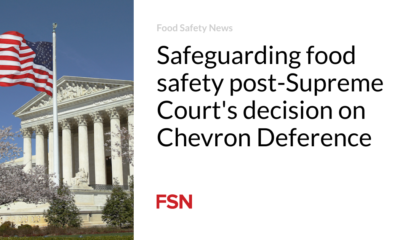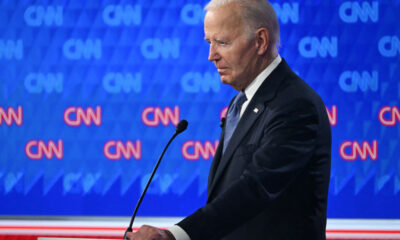Business
WhatsApp is facing backlash over its decision to lower the minimum age

Meta, the social media giant behind encrypted messaging app WhatsApp, is facing criticism from educators, lawmakers and activists for its recent move to lower the minimum age for users from 16 to 13.
The decision has raised alarm about the potential risks to children by promoting cyberbullying, sleep disorders and exposure to harmful content.
Campaigners have branded Meta’s decision as “highly irresponsible” and urged the company to reconsider its position amid growing concerns about the welfare of young users. Experts and politicians have joined forces to denounce the move, with Smartphone Free Childhood, a prominent advocacy group, taking the lead.
WhatsApp, the second most popular platform among children according to Ofcom, has often escaped the scrutiny of other social media platforms such as TikTok or Instagram. However, experts warn that closed messaging groups on WhatsApp can be just as harmful, if not more so.
The government is now considering imposing restrictions on the purchase of smartphones by under-16s, following growing concerns about children’s online safety.
Daisy Greenwell, co-founder of Smartphone Free Childhood, slammed WhatsApp for prioritizing profits over child safety, and criticized the decision to lower the age limit as “completely tone deaf.” She highlighted the platform’s potential as a gateway to more risky social media apps and its role in exposing children to cyberbullying and inappropriate content.
Vicky Ford, member of the Education Committee, condemned Meta’s unilateral decision and expressed concern about the encryption on WhatsApp, which makes it difficult to immediately remove illegal content.
Recent studies have shed light on the prevalence of cyberbullying within WhatsApp groups, with educators reporting cases of abuse taking place even in the early hours, impacting children’s sleep patterns and mental health.
Dr. Kaitlyn Regehr of University College London warned that closed groups on platforms like WhatsApp often facilitate the sharing of harmful content, which can exacerbate problems such as misogyny and hate speech among young users.
While Meta defends its decision by citing global standards, critics say the move sends the wrong message about online safety to parents and educators. As calls for stricter regulations on minors’ use of social media gain momentum, the debate over children’s digital well-being continues to intensify.
In a separate development, Meta has announced plans to introduce a nudity filter on Instagram to combat the growing threat of ‘sextortion’, aiming to protect users from exploitation and blackmail.













